Challenges Faced by Businesses Using Industrial Packaging Machines
In today's fast-paced manufacturing landscape, businesses increasingly rely on industrial packaging machines to enhance productivity and ensure product integrity. According to a report by Smithers Pira, the global market for industrial packaging machinery is expected to reach $60 billion by 2025, driven by demands for efficiency and sustainability. However, despite their advantages, companies face various challenges when integrating these machines into their operations.

Issues such as high initial investment costs, the need for skilled personnel, and the complexities of machine maintenance can hinder optimal performance and ROI. As businesses seek to modernize their packaging processes, understanding and overcoming these challenges will be critical to leveraging the full potential of industrial packaging machines in an increasingly competitive market.
Common Obstacles in Industrial Packaging Machinery Implementation
Implementing industrial packaging machinery brings a set of common obstacles that businesses often encounter. One significant challenge is the initial cost of investment. The procurement of high-quality machinery can strain budgets, particularly for small to medium-sized enterprises. Additionally, businesses may face issues related to the long lead times for delivery and installation, which can disrupt production schedules and delay access to enhanced packaging capabilities.
Another prevalent obstacle is the integration of new machinery with existing production lines. Companies often struggle to ensure compatibility between outdated systems and modern technology, which can lead to inefficiencies and increased downtime. Training employees to operate and maintain new machines is essential, yet it requires time and resources that may not always be readily available.
Furthermore, the potential for technical malfunctions or breakdowns poses a risk, prompting businesses to consider ongoing maintenance plans that add to operational costs. Addressing these challenges is crucial for a smooth transition to advanced industrial packaging solutions.
Cost Management Strategies for Adopting Industrial Packaging Solutions
Adopting industrial packaging solutions can present significant cost challenges for businesses. One major factor is the initial investment in machinery and technology, which can be daunting, especially for small to medium-sized enterprises. To manage these costs effectively, companies should consider a phased approach to implementation. By investing in modular packaging machines that can be expanded or upgraded over time, businesses can align their financial resources with operational needs while minimizing the risk of over-investment in unnecessary equipment.
Additionally, exploring flexible financing options can be a strategic way to alleviate cash flow pressures. Many manufacturers offer leasing or financing plans that spread the cost over time, allowing companies to benefit from modern packaging solutions without crippling their budgets. Organizations should also conduct a thorough analysis of their operational efficiency; over time, the right packaging machinery can lead to significant savings in labor and material costs, ultimately offsetting the initial expenditures. Emphasizing cost management from the outset is essential for ensuring that investments in industrial packaging yield long-term benefits for the business.
Challenges Faced by Businesses Using Industrial Packaging Machines - Cost Management Strategies for Adopting Industrial Packaging Solutions
| Challenge | Impact on Business | Cost Management Strategy | Expected Outcome |
|---|---|---|---|
| High Initial Investment | Limited cash flow and potential delays in project initiation | Explore leasing options instead of outright purchase | Improved cash flow, ability to allocate funds elsewhere |
| Maintenance Costs | Unplanned downtime can disrupt operations | Implement a preventative maintenance schedule | Reduced downtime and lower overall maintenance expenses |
| Training Staff | Increased labor costs if staff are not adequately trained | Develop comprehensive training programs | Greater efficiency and productivity from trained staff |
| Supply Chain Disruptions | Delays in packaging can lead to customer dissatisfaction | Establish multiple suppliers to reduce dependency | Increased reliability and customer satisfaction |
| Technology Upgrades | Outdated machines can affect production speed and quality | Consider phased upgrades to spread costs | Enhanced production capabilities and competitive edge |
Streamlining Operations: Overcoming Efficiency Barriers in Packaging Machines
 Industrial packaging machines are integral to modern manufacturing, yet many businesses face significant challenges in streamlining their operations. One major hurdle is maximizing efficiency while minimizing errors during the packaging process. Inefficiencies can lead to increased operational costs and wasted resources, hindering productivity.
Industrial packaging machines are integral to modern manufacturing, yet many businesses face significant challenges in streamlining their operations. One major hurdle is maximizing efficiency while minimizing errors during the packaging process. Inefficiencies can lead to increased operational costs and wasted resources, hindering productivity.
To overcome these efficiency barriers, companies should start by investing in regular maintenance and training for their staff. A well-maintained machine operates smoothly, reducing downtime and ensuring a consistent output. Additionally, employees equipped with the right knowledge can troubleshoot minor issues before they escalate into major problems.
Moreover, businesses can benefit from integrating automation into their packaging lines. Implementing smart packaging solutions can enhance precision and speed, thus improving overall workflow. It’s essential to conduct a thorough assessment of current packaging processes to identify areas where automation could provide the most significant impact. By strategically investing in these initiatives, businesses can streamline their operations and achieve greater efficiency in their packaging endeavors.
Technological Adaptation: Integrating the Latest Innovations in Packaging
The landscape of industrial packaging is rapidly evolving, driven by technological advancements aimed at improving efficiency and sustainability. According to a recent report from Smithers Pira, the global market for industrial packaging is projected to grow to $1 trillion by 2027, highlighting the pressing need for businesses to adopt innovative solutions. Companies face the challenge of keeping pace with the latest technologies, such as automated packaging systems, smart sensors, and AI-driven analytics, which are essential for maintaining competitiveness.

To successfully integrate these advancements, businesses must overcome initial resistance to change. Employee training and the adaptation of existing workflows are critical steps. A survey conducted by PMMI indicates that 63% of companies experience delays in implementing new packaging technologies due to inadequate training. This statistic underlines the importance of investing in personnel development to maximize the benefits of technological innovations.
Tips: Ensure that your team is well-versed in the latest packaging technologies through regular training sessions. Collaborate with tech providers to understand how these innovations can be customized to fit your operational needs. Additionally, conduct a thorough ROI analysis before integrating new machinery to ensure that the benefits align with your business goals and budget constraints.
Training and Workforce Development for Effective Machinery Utilization
The efficient operation of industrial packaging machines significantly hinges on well-trained personnel. As companies invest in advanced machinery, they often encounter challenges related to the skill gap among workers. The complexity of modern packaging equipment requires a deep understanding of both technology and the production process. Therefore, organizations must prioritize training programs that focus on hands-on experience and theoretical knowledge. This investment not only maximizes the utilization of machinery but also minimizes downtime caused by operator errors.
Moreover, cultivating a culture of continuous learning within the workforce plays a vital role in effective machinery utilization. Regular workshops and skill enhancement sessions help workers stay updated on the latest technological advancements and maintenance best practices. By fostering an environment where employees feel supported in their development, businesses can increase productivity and reduce operational risks. In an industry that is rapidly evolving, prioritizing workforce development is essential for maintaining a competitive edge and ensuring smooth operational flow.
Challenges Faced by Businesses Using Industrial Packaging Machines
This chart illustrates the primary challenges businesses encounter when utilizing industrial packaging machines, focusing on the aspects of training and workforce development.
Related Posts
-
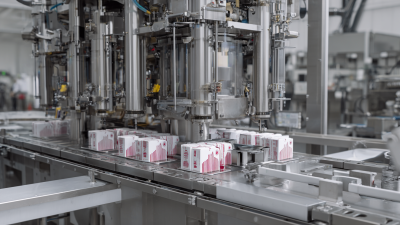
Maximizing Efficiency: Top Strategies for Selecting the Best Liquid Packaging Machine
-
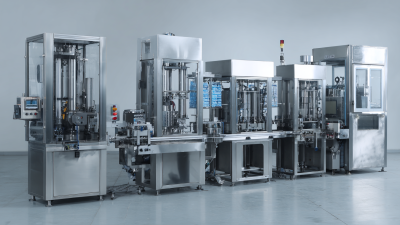
Comprehensive Guide to Choosing the Best Sachet Filling Machine for Diverse Product Applications
-

What is the Future of Cardboard Box Machines in Sustainable Packaging
-
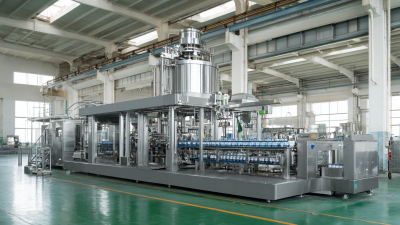
From China's Leading Factories: The Best Liquid Filling Machines Trusted by Global Buyers
-
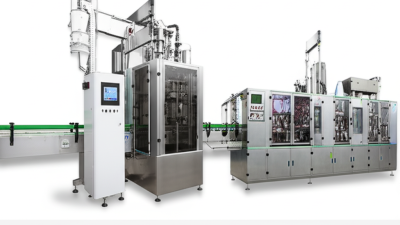
Chinese Excellence in Liquid Packaging Machines for Global Buyers
-
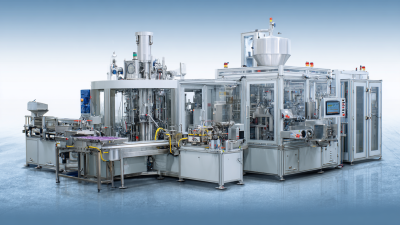
Empowering Global Partnerships with China's Finest Pouch Filling Machines: Quality Meets Innovation
